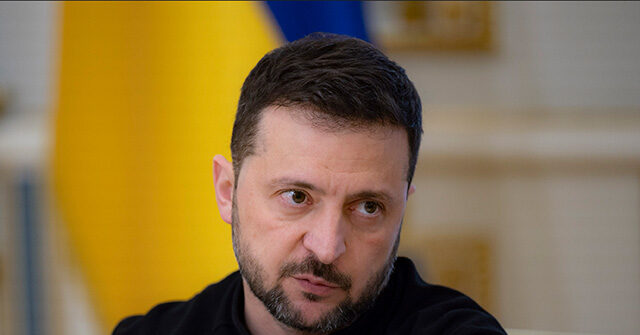Ukrainian President Volodymyr Zelensky is sounding alarms over the perceived inaction of Western allies in response to reports of North Korean mercenaries preparing to fight for Russia amid ongoing hostilities in Ukraine. In a recent interview with South Korean broadcaster KBS, Zelensky lamented the “zero” response from Western nations to this alarming development, characterizing it as an opportunity for Russian President Vladimir Putin to increase military operations without fear of significant pushback. Zelensky warned that the current level of Western reaction may embolden Russia to ramp up its military efforts, specifically predicting that if the West fails to respond decisively, the presence of North Korean troops near Ukraine’s borders will likely escalate quickly.
In his remarks, Zelensky highlighted a troubling trend: the lack of vocal condemnation or action from not only Western nations but also China regarding North Korea’s potential involvement in the conflict. He expressed surprise at China’s silence, pointing out that despite the Biden-Harris administration’s pleas for Beijing to leverage its influence over Pyongyang, there has been little to no success. Zelensky stated, “North Korean troops have not yet engaged in combat, but this is a matter of days, not months,” emphasizing that their integration into the battlefield could come swiftly. He underscored the stark nature of the conflict, illustrating it as a war of two nations against Ukraine, and labeled North Korea’s involvement as a significant escalation, especially as the war approaches its one-thousandth day.
Zelensky provided further insight into Russia’s strategy, claiming that the North Korean contingent is not limited to combatants but also includes engineering units and civilian workers meant to enhance Russia’s military production capabilities. He drew parallels between the current situation with North Korea and the global reaction—or lack thereof—when Russia initially invaded Crimea a decade ago. According to Zelensky, this silence demonstrates that Putin is carefully testing the international community to gauge responses. He cautioned that without a strong reaction from the West, there is a risk of Russia seeking additional support from other allies, such as Iran, which could further complicate the conflict.
The Ukrainian president articulated a grim view of the alliance between Russia and North Korea, describing it as mutually beneficial. Zelensky explained that while Russia avoids politically controversial domestic mobilization thanks to North Korean support, Kim Jong-un stands to gain critical combat experience for his forces. The dichotomy in leadership philosophies is striking; both leaders appear to devalue human life when it serves their strategic interests. Zelensky warned that the military experience North Korea stands to gain could destabilize the Asian region, underscoring Ukraine’s commitment to fostering closer ties with South Korea—a strategic partner in regional security.
In an invitation to South Korea, Zelensky urged the country to join the broader pro-Ukrainian coalition alongside the United States, the UK, and European allies. He stressed that South Korea must understand the real capabilities of North Korean soldiers by seeing the situation in Ukraine firsthand. Zelensky emphasized the importance of solidarity among allies, warning that North Korea’s involvement in combat preparations poses an imminent threat. He related South Korea’s potential predicament to Ukraine’s experience, recounting how their initial defenses were overwhelmed, motivating South Korea to act in unison with other nations to counter a similar fate.
The urgency of Zelensky’s concerns has garnered support from U.S. Defense Secretary Lloyd Austin, who echoed the expectation of North Korean troops entering the conflict imminently. Austin described Russia’s outreach to North Korea as a mark of desperation, suggesting that it reflects the dire state of Putin’s military campaign in Ukraine. He underscored that any North Korean military engagement would classify those troops as legitimate targets for Ukraine. Zelensky’s dialogue with South Korea and the forecasts from U.S. officials signify an escalating need for a cohesive international response to counter the growing alliance between Russia and North Korea, which threatens both regional and global stability.

